
Opinions
10:50, 05-Sep-2018
The Heat: What's behind Venezuela's economic crisis?
Updated
09:53, 08-Sep-2018
CGTN's The Heat
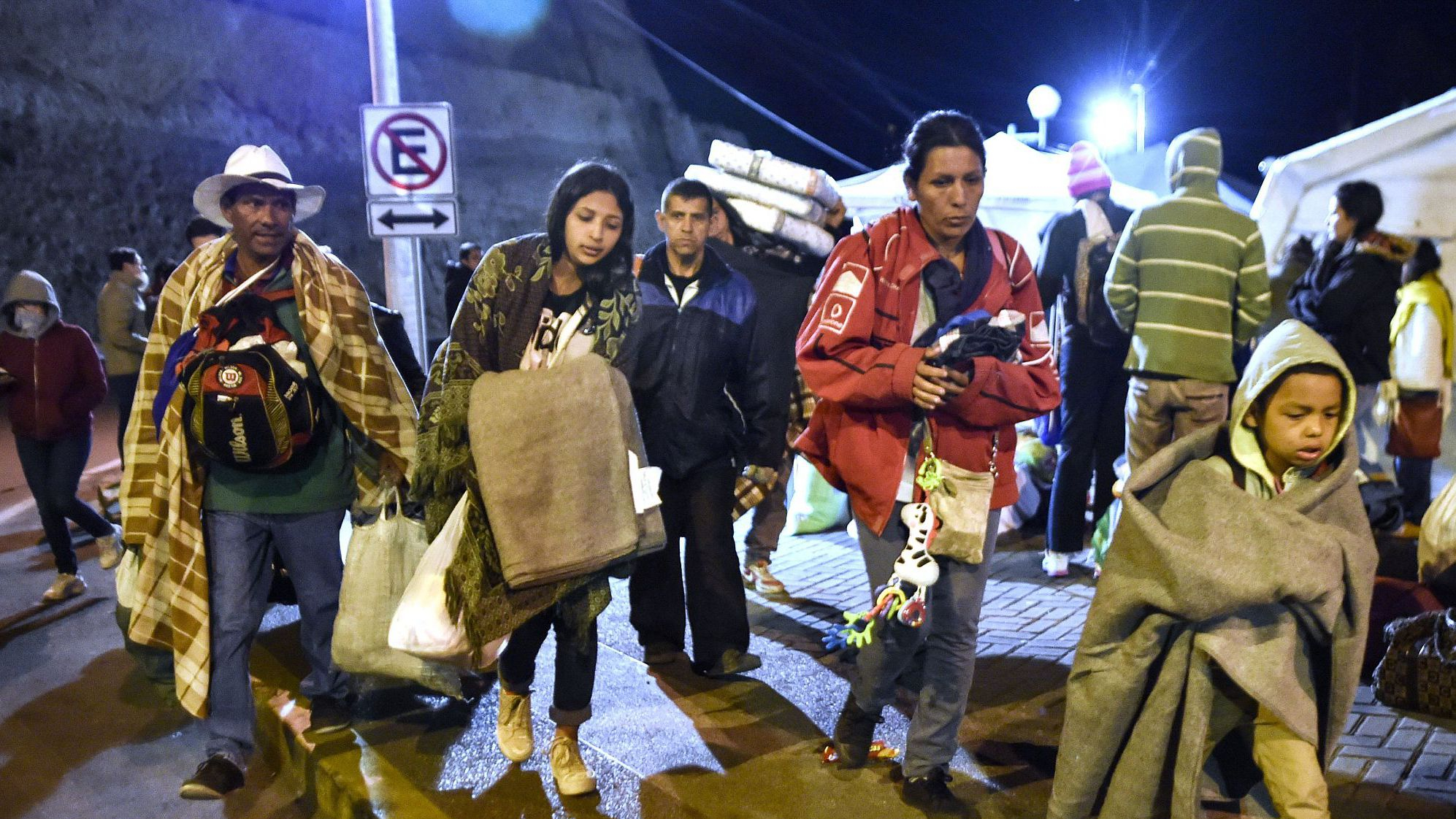
The Venezuela economic crisis, fueled by a drop in oil prices, is extending beyond its borders as thousands flee to neighboring countries. Venezuelan President Nicolas Maduro blames the US and the European Union for what he calls an "economic war" and the sanctions imposed on his country.
The exodus of Venezuelan migrants to neighboring countries has placed a strain on public services, and ministers from Latin America nations called for "joint regional measures" to tackle the problem.
Opinion on the cause of this economic crisis are divided into two parties. One blames Venezuela for the mismanagement of its natural wealth, the other sees the crisis as the result of malicious foreign interference.
01:05
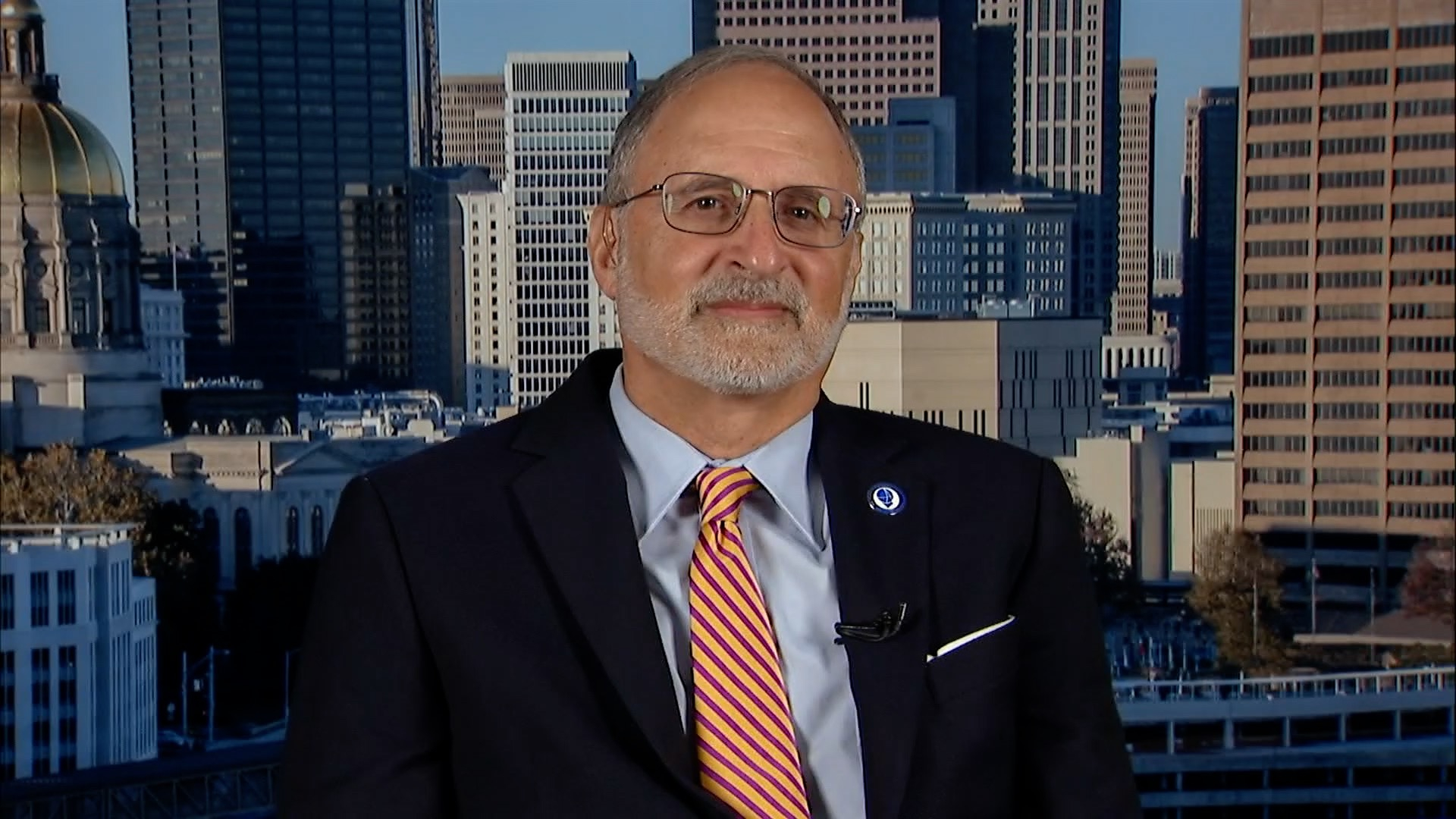
Eduardo Gamarra, a professor at the Department of Politics and International Relations at Florida International University, said that the economic free fall is "largely rooted in economic mismanagement" over the course of last two decades.
"This is the wealthiest country on earth with an incredible amount of oil reserves and is being mishandled," he said. "And the response of the crisis is irresponsible."
Gloria La Riva, coordinator for the Cuba and Venezuela Solidarity Committee, agreed with the idea advocated by Maduro about it being an "economic war." She referred to the US economic sanctions as an attempt to take control of Venezuela's oil industry.
"The US attacked the legitimate government to take control of the oil, the same thing that they did in Iraq and Iran," said La Riva. "The overthrow of a government after they nationalized their oil. It's a playbook of the Pentagon."
The situation could worsen as the US has started conducting a joint military cruise with several other Latin America countries.
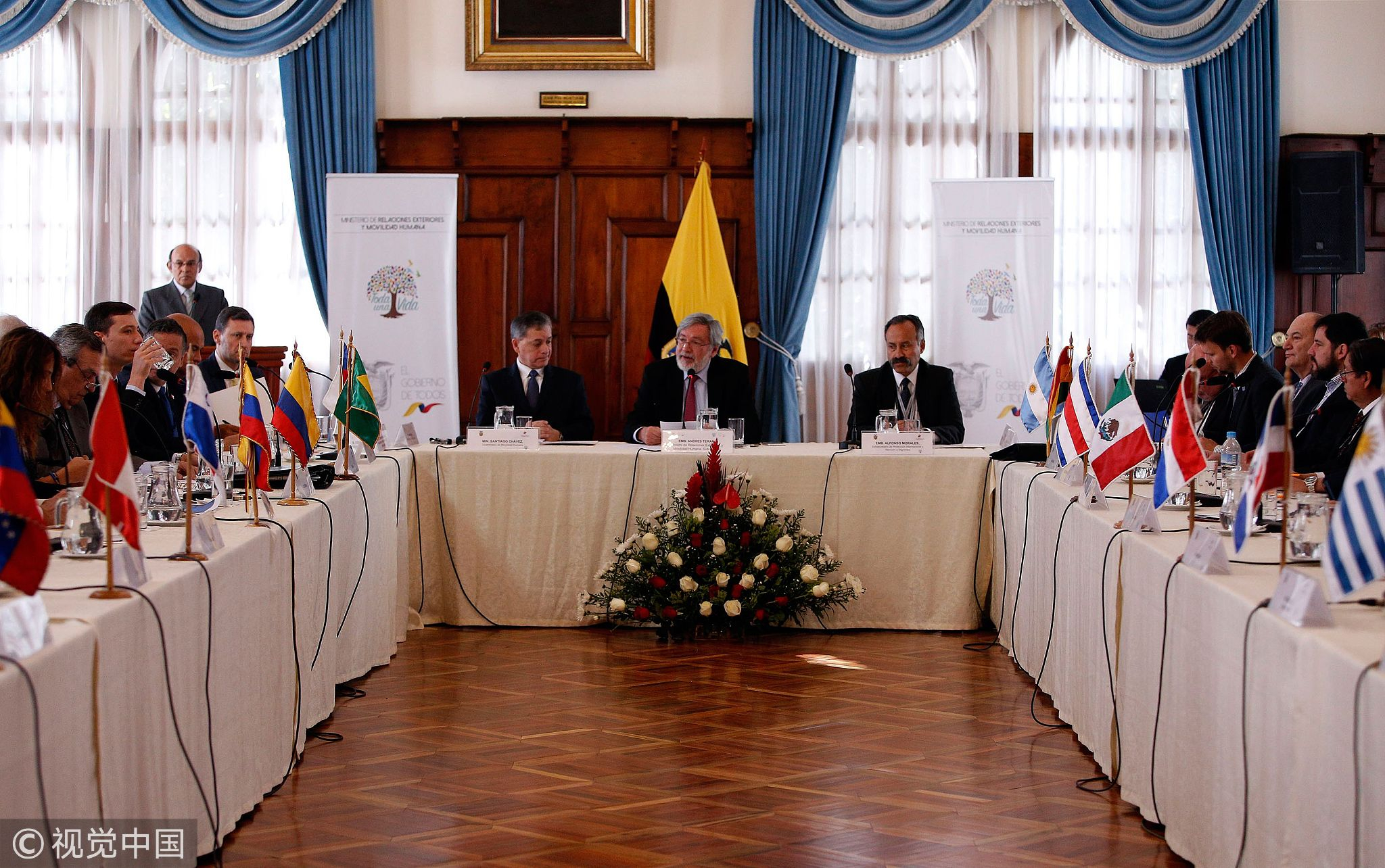
Ministers from a dozen Latin American nations start a two-day meeting on how they can cooperate to end the massive Venezuelan migrant crisis at the Foreign Ministry in Quito, September 3, 2018. /VCG Photo.
Ministers from a dozen Latin American nations start a two-day meeting on how they can cooperate to end the massive Venezuelan migrant crisis at the Foreign Ministry in Quito, September 3, 2018. /VCG Photo.
"It's extremely unlikely that the military action is aimed at Venezuela," said Charles Shapiro, president of the World Affairs Council and former US Ambassador to Venezuela. "It has been going on for decades."
Based on his experience as an ambassador to the country, he was straightforward about his disapproval of government management.
"It's pure flat-out mismanagement complicated by wrongheaded policy cronyism, nepotism, drug trafficking," he said. According to Shapiro, oil production in Venezuela is down to the level of 1947, which lead to what he called a "humanitarian crisis."
The government should be blamed for rejecting help from the international community and trying to formulate the perception of a foreign conspiracy.
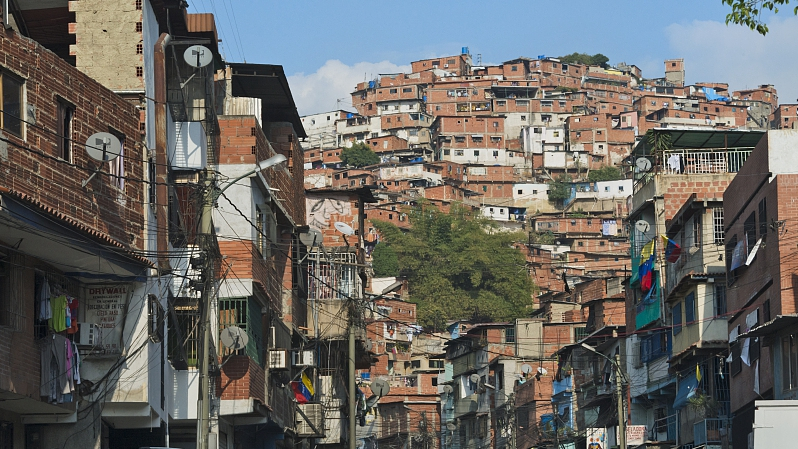
View of Caracas, the capital city of Venezuela / VCG Photo.
View of Caracas, the capital city of Venezuela / VCG Photo.
Ten percent of Venezuela's population has fled to neighboring countries, leading to regional conflicts. While debate continues about whether the exodus is temporary or a permanent migration, it is widely believed that the economic package released by the government generated little positive effect and it could take at least a few years for the domestic economy to recover.
Paul Dobson, a journalist based in Merida, Venezuela, quoted a survey by the governments of Peru and Brazil indicating that the migrants will ultimately return to their motherland.
"These people just want to earn a few bucks in its neighboring countries and send them back to support their families at home," he argued. "They have no plans to settle there, nor are they sending their children to school in another country."
However, Gamarra disagreed and viewed that judgment as "short-sighted," pointing out that academic research points to forced migration likely being permanent.
The context of the present migration is that starting two decades ago, Venezuela's wealthiest class started leaving the country, followed by the middle class, and now the working class. Forced by a systemic failure of the economy, countries around the world are seeing migrants from Venezuela. The brain drain, in turn, worsened the economic condition.
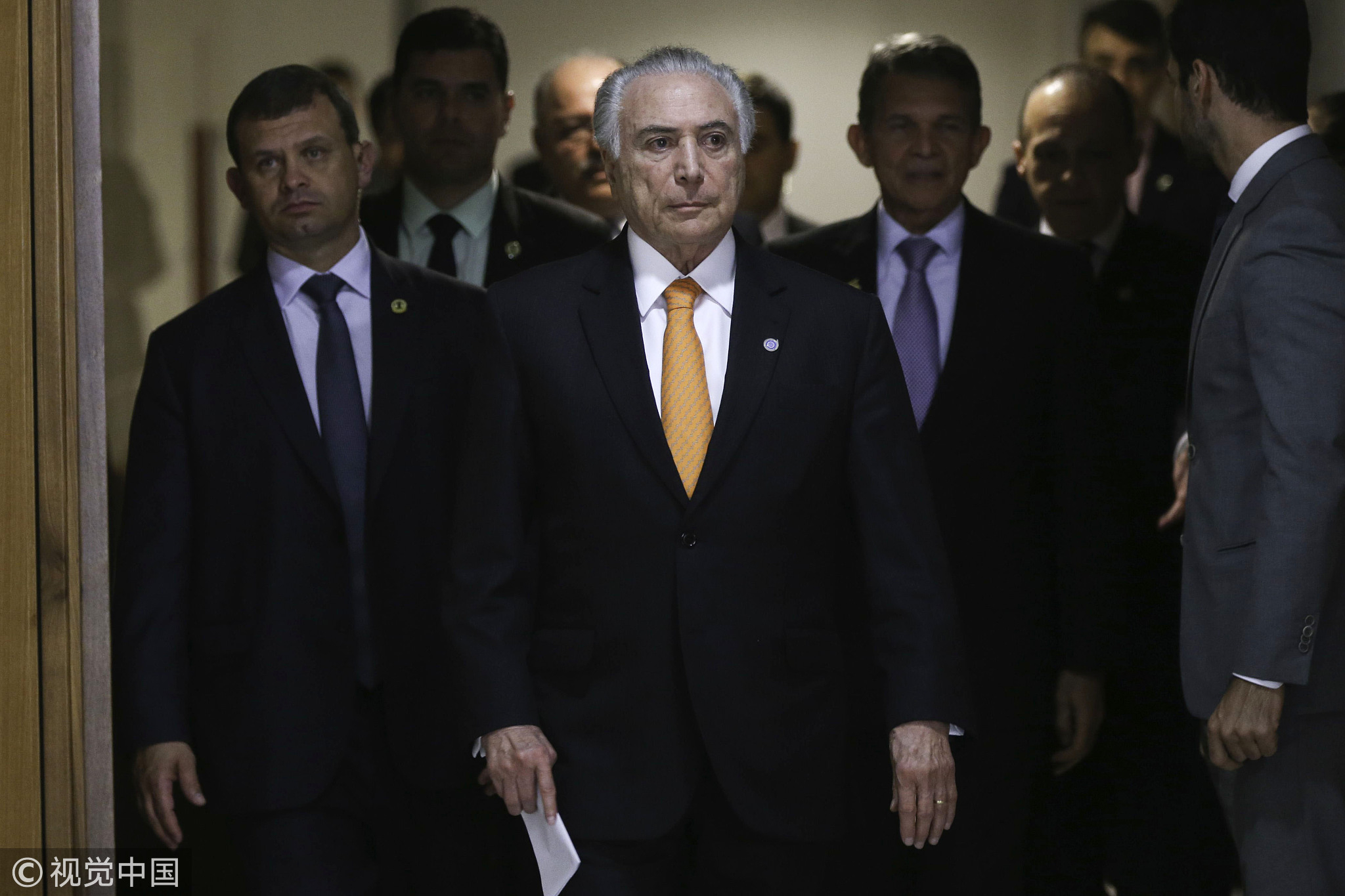
Brazilian President Michel Temer leaving after he announced Brazil is sending troops to reinforce security on the border with Venezuela, at Planalto Palace in Brasilia, August 28, 2018 /VCG Photo.
Brazilian President Michel Temer leaving after he announced Brazil is sending troops to reinforce security on the border with Venezuela, at Planalto Palace in Brasilia, August 28, 2018 /VCG Photo.
But the government is refusing to let go of the control of the economy without a fight. Recently the president sent a plane to Peru to collect Venezuelans abroad, saying "letting our citizens clean toilets in foreign countries is not acceptable."
However, other countries see this as a security and economic threat to their homeland. Brazil's government has sent troops to its border, to protect migrants after they were attacked and chased out of the town by locals. The Venezuelan government is in apparent need of international support.
"Venezuela has to choose its own path and save itself from the US attacks," said Dobson. "The government is receiving financial support, but not those from ExxonMobil or Pentagon."
(Cover: Members of Venezuelan migrant family Mendoza Landinez wait for the buses provided by Ecuadoran authorities to take them to the border with Peru, August 24, 2018. /VCG Photo.)
The Heat with Anand Naidoo is a 30-minute political talk show on CGTN. It airs weekdays at 7:00 a.m. BJT and 7:00 p.m. Eastern in the United States.
If you want to contribute and have a specific expertise, please contact us at opinions@cgtn.com.

SITEMAP
Copyright © 2018 CGTN. Beijing ICP prepared NO.16065310-3
Copyright © 2018 CGTN. Beijing ICP prepared NO.16065310-3